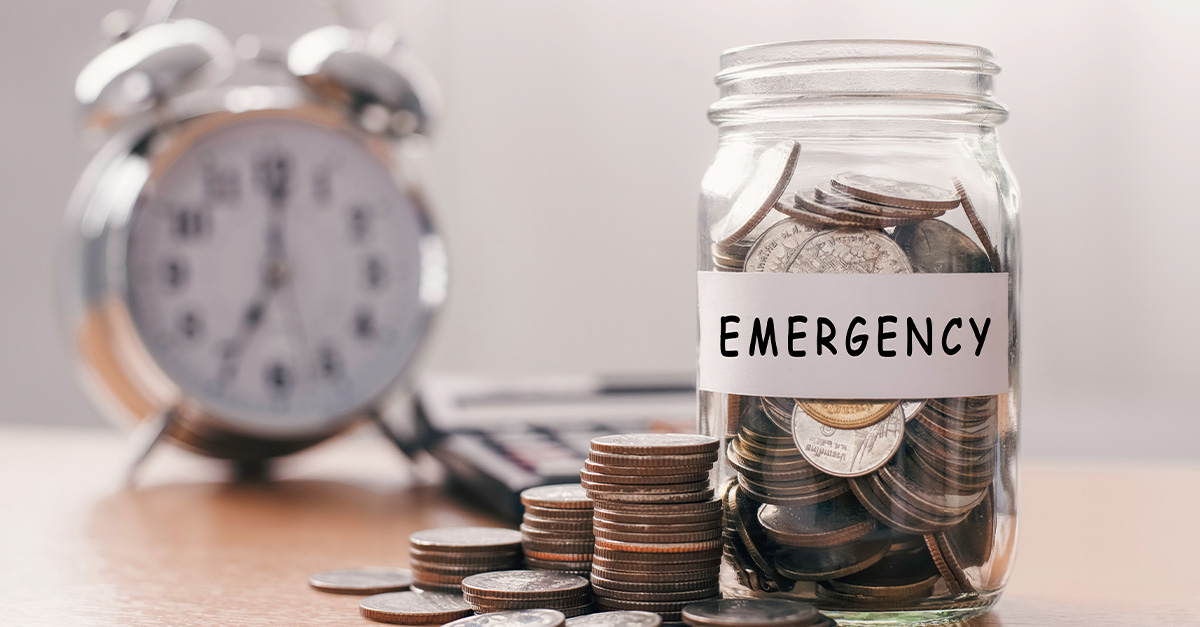
Investing For Your Future Starts With As Little As $250
Investing For Your Future Starts With As Little As $250
Investing is an endeavor that is better started while you are still young. In order to grow your wealth, you're going to need time (and lots of it), so it's important to act as soon as possible. It can be intimidating to dive headfirst into it, especially if you feel like you don't have enough funds set aside; but the reality is that you don't really need a lot of money to get started. In fact, you probably already have enough in your bank account at this very moment.
Lynette Khalfani-Cox, the CEO of Money Coach, told Insider that all you really need to get started with investing is $250 to $500. In her experience, that amount will give new investors a good foundation to "start building a more robust portfolio." Nowadays, you can buy shares for as low as $50, so anything within her recommended range should be more than enough. And even if you can't afford full shares, you can always opt to buy partial or fractional shares. The bottom line is, cost-effective investment options do exist—it's just a matter of taking the plunge and actually going for it.
Of course, everybody's investment goals will be different, so it's still important to have the right strategy in mind. For beginners, in particular, Khalfani-Cox suggests holding off on individual stocks at first and starting with ETFs (exchange-traded funds) or index funds instead. It can be tempting to buy individual stocks straight out of the gate, but doing so without having the proper knowledge could also put you at a higher risk of losses.
 Shutterstock
Shutterstock
"Even though people may be tempted to find the latest hot stock, novices should stay away from individual stocks as their very first foray into the stock market. A low-cost passive index fund that tracks an index like the S&P 500 will give a person broad exposure to the overall stock market and good diversification."
Once you have more experience, you can try your luck with individual stocks to learn more about the market. However, it may be best to seek the help of an advisor when you're first starting out, just to make sure you are making well-informed decisions and avoiding unnecessary risks. If you aren't sure what strategy would suit your needs best you can always get a brokerage firm to help you figure that out via a risk assessment questionnaire.
Lastly, once you get started with investing, it's important to stay committed and keep investing over time. Consistency is key for growing your wealth, so if you have room in your budget to set up automatic contributions to your investments, that will help you stay on track. Ideally, you want to reach a point where you are investing 20% of your income. If you can achieve that, you'll be more than prepared for what the future has in store for you.
READ MORE

If your accountant is filing for bankruptcy, it raises valid concerns about your own financial security, their judgment, and whether you should continue working with them.

Prices just keep going up. It's insane what I'm paying for eggs and toilet paper. I work two jobs and still can't pay my bills. What should I do?

I’m in my mid-forties and still renting. I feel like house prices are overwhelming. At this age, does it still make sense to get into the housing market?

I thought I was making a great gesture of kindness by lending my in-laws money. Now it’s been two years since we last heard from them. Is there a way out of this mess?

Becoming a landlord was supposed to be my golden ticket, but no one ever talks about what to do when things go wrong. My tenants are farming chickens! What can I do?

For some, having an emergency fund at all is a luxury. However, for those who have had it and had to use it in a crisis, rebuilding it can be daunting. Let's explore options for rebuilding your multi-thousand-dollar emergency fund.
Disclaimer
The information on MoneyMade.com is intended to support financial literacy and should not be considered tax or legal advice. It is not meant to serve as a forecast, research report, or investment recommendation, nor should it be taken as an offer or solicitation to buy or sell any securities or adopt any particular investment strategy. All financial, tax, and legal decisions should be made with the help of a qualified professional. We do not guarantee the accuracy, timeliness, or outcomes associated with the use of this content.
Dear reader,
It’s true what they say: money makes the world go round. In order to succeed in this life, you need to have a good grasp of key financial concepts. That’s where Moneymade comes in. Our mission is to provide you with the best financial advice and information to help you navigate this ever-changing world. Sometimes, generating wealth just requires common sense. Don’t max out your credit card if you can’t afford the interest payments. Don’t overspend on Christmas shopping. When ordering gifts on Amazon, make sure you factor in taxes and shipping costs. If you need a new car, consider a model that’s easy to repair instead of an expensive BMW or Mercedes. Sometimes you dream vacation to Hawaii or the Bahamas just isn’t in the budget, but there may be more affordable all-inclusive hotels if you know where to look.
Looking for a new home? Make sure you get a mortgage rate that works for you. That means understanding the difference between fixed and variable interest rates. Whether you’re looking to learn how to make money, save money, or invest your money, our well-researched and insightful content will set you on the path to financial success. Passionate about mortgage rates, real estate, investing, saving, or anything money-related? Looking to learn how to generate wealth? Improve your life today with Moneymade. If you have any feedback for the MoneyMade team, please reach out to [email protected]. Thanks for your help!
Warmest regards,
The Moneymade team








